9 min read
ALPS In Brief Podcast - Episode 10: Why is mandatory malpractice insurance gaining ground?
ALPS Executive Vice President, Chris Newbold, recently sat down with Doug Ende, the Chief Disciplinary Counsel at the Washington State Bar...
11 min read
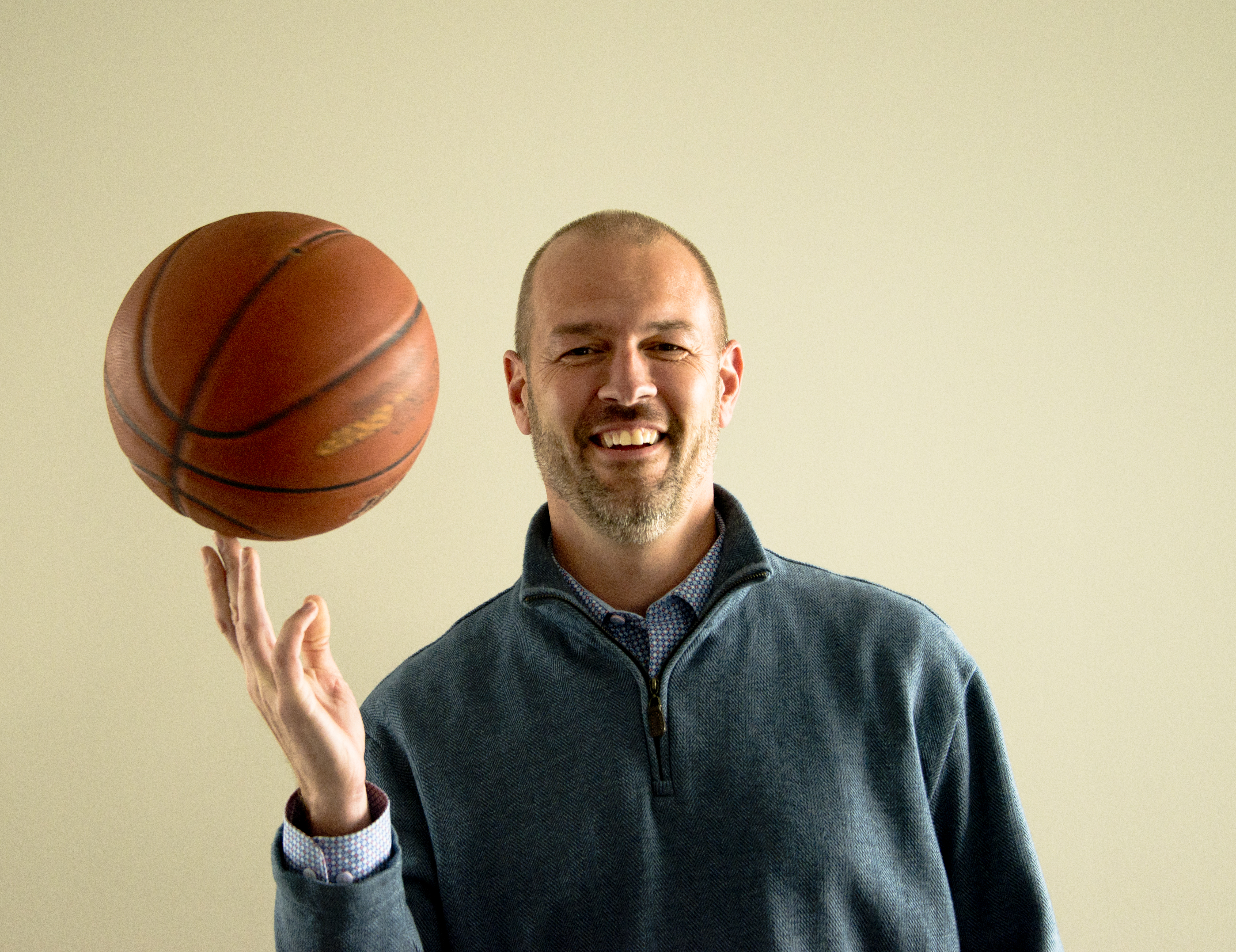 Chris Newbold, Chief Operating Officer
:
Updated on February 28, 2024 | Posted on March 7, 2018
Chris Newbold, Chief Operating Officer
:
Updated on February 28, 2024 | Posted on March 7, 2018
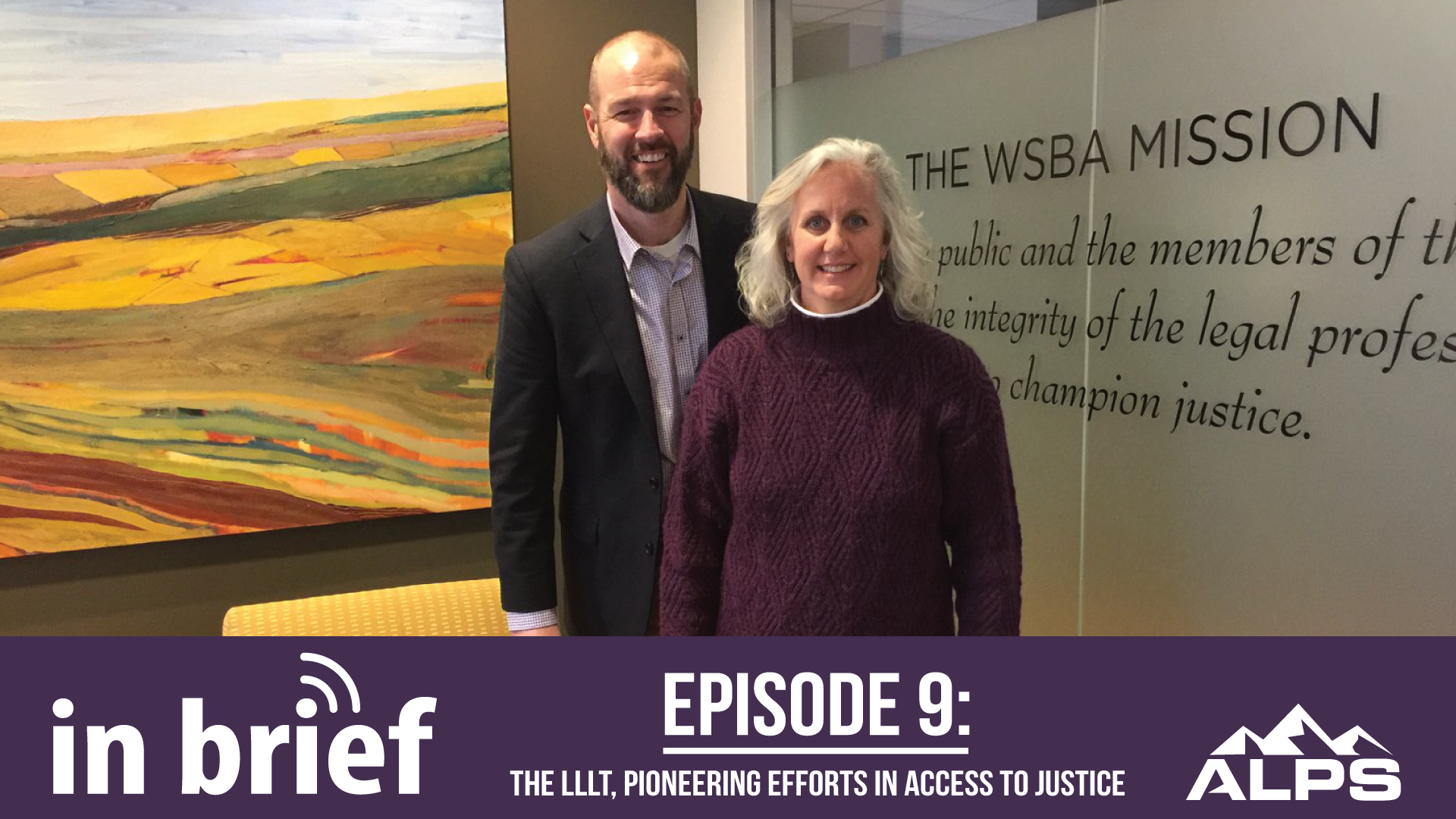
Recorded from the Washington State Bar Association offices in Seattle, ALPS Executive Vice President, Chris Newbold, sits down with WSBA Executive Director, Paula Littlewood to discuss Washington’s pioneering efforts in improving access to justice through the Limited Legal License Technician (LLLT) licensure. Today there are 80-90% of people with civil legal problems, particularly people in a lower income bracket, who don’t or are unable to receive help from a lawyer. Hear about where the program is today, its foundational principles and why it is being closely watched nationally as a forward-thinking solution by access to justice advocates as the first independent paraprofessional license in the legal profession in the United States.
ALPS In Brief, The ALPS Risk Management Podcast, is usually hosted by ALPS Risk Manager, Mark Bassingthwaighte. This episode is hosted by Chris Newbold, ALPS Executive Vice President.
Transcript:
CHRIS:
Okay. Welcome. Thanks for joining us for another episode of ALPS in Brief. My name is Chris Newbold. I am Executive Vice President of ALPS. Today I’m sitting in downtown Seattle in the offices of the Washington State Bar Association with a colleague and a friend, Paula Littlewood, who’s the Executive Director of the Washington State Bar Association. I want to talk about a subject that is trending nationally, which is thinking about how we battle access to justice issues and one of the innovative programs that the Washington State Bar is involved with, which is the triple L.T. program, the Limited Legal License Technician. Before we start, Paula, if you could introduce yourself, your role, and what the Washington State Bar does.
PAULA:
I am Paula Littlewood, Executive Director of the Washington State Bar Association. I’ve been here about 15 years. The Washington State Bar is what’s known as an integrative bar, so we are the regulatory agency operating under delegated authority from the Washington Supreme Court to regulate all licensed legal professionals in the State of Washington. We are also the professional association supporting our members as they do their work and serve the public.
CHRIS:
Okay. One of the issues that we’re really focusing on today is the issue of access to justice. We know that 80 to 90% of folks with civil legal problems in the United States, particularly those of low income, never receive help from a lawyer. I know that one of the things that you’ve been trying to do, as part of your job here in Washington, is to think about that challenge and to come up with solutions. One of the ways that you’ve done that is a program that, if you go out to the National Bar Association regional bar gatherings, it’s hard not to hear about this particular subject that you all are at the forefront of. Talk about what the triple L.T. program is and why it’s unique and why it’s different when you think about the context of alternative legal services.
PAULA:
Probably the first thing I’d say is it’s not a program. It’s a license. What we are doing in Washington State is licensing the first independent paraprofessional in the legal profession in the United States. In many states you might be familiar with a nurse practitioner in the medical field. Nurse practitioners in many states, in our state, are licensed to work independently of the doctor to give medical advice up to a certain point. When they reach the edge of their license, and the scope of their responsibility that they’re licensed to do, they refer the patient on to the doctor. Triple L.T. is the exact same concept in the legal field. A triple L.T. is licensed. They have a limited license, hence the name limited license legal technician, to work independently. If they choose, open their own practice separate from a lawyer, to provide legal advice in certain practice areas.
The Supreme Court rule that creates this license is designed to be applied in various practice areas. The first practice area that the triple L.T.s are licensed in in Washington State is family law. One of the things that the Supreme Court’s triple L.T. board is exploring now is what the next practice area will be. It’s envisioned that some triple L.T.s may want to get licensed in multiple areas or there may be people that aren’t interested in family law but, if a different practice area comes on line, they may choose to become a triple L.T. in that practice area.
I think it’s important to distinguish the triple L.T. from other alternative service providers that we all are familiar with nationwide. We have document preparers. We have courthouse facilitators. We have the New York navigators who are all critical in helping service the public. The different with the triple L.T. is they are licensed to give legal advice just like Chris and I are as lawyers. We actually don’t consider triple L.T.s non-lawyers because they have a license to practice law from the State Supreme Court just like I do. It’s just that they have a limited license and can only provide services up to a certain amount, and then by court rule are required to refer the client on to a lawyer.
CHRIS:
Okay. What was the catalyst for the program? Who provided the thought leadership in coming up with the concept?
PAULA:
It’s a two-track approach that it came in on. There was a Supreme Court board. The Washington Supreme Court had a board known as the Practice Law Board. They were looking at unauthorized practice law and how can we deal with the unauthorized practice law? That was one track that brought us the triple L.T. They were trying to figure out how do you provide to the consumer qualified and regulated legal service providers? At the same time, our Washington Supreme Court had commissioned a civil legal needs study, which quantified the unmet need. Chris referenced this at the beginning of our talk, the unmet need in our country.
The civil legal needs study, we knew we had a lot of unmet needs, but it gave us an actual quantification that 80 to 85% of low and moderate-income folks were going without the representation that they needed in critical civil matters. Between those two things, the need to get more qualified and regulated providers into the marketplace, and the staggering unmet need, the Practice Law Board worked for about eight years and recommended to the Washington Supreme Court the creation of this limited license legal technician license. The court adopted the rule in 2012, and we were off to the races.
CHRIS:
Okay. When was the first class of those applying for licensure?
PAULA:
It was about two years later. When the court created the license, they also created the Limited License Legal Technician Board. The Supreme Court needed a board that would figure out how the license would run. As the court’s regulatory agency, we staff and fund that board. We work together because we’re the regulator and they’re the Supreme Court’s board setting all the policy. It took two years. If you think about what the triple L.T. board was doing, they were creating a new profession out of whole cloth. When you hear the chair of the triple L.T. board talk about it, he’ll say, “It wasn’t like we could go to California or New York and pull their rule off the shelf and say okay let’s modify it to fit in Washington.” They had to define the scope of family law and what these folks would be allowed to do. We had to design a curriculum to train them. We had to design a bar exam. We were creating a whole profession.
It took about two years until we actually had candidates in the process being trained. We’re about 2012 to 2018, we’re about six years in. Right now we have 27 who are licensed. We have another 60 or so that are completing education and admission requirements. Then we probably have a couple hundred coming up through the community colleges. The education happens at two levels. There’s what we call a core education at the community college level. Once they complete that, then they can move on to the practice area education, which is offered through the University of Washington Law School. We’ve had people say to us, “That’s all you have?” We’re saying, “Well, we started from ground zero.” I think, once it starts picking up momentum, we’ll …
CHRIS:
Yeah. One of the things that we found very interesting about the class of folks that you are licensing is just that you require them to have malpractice insurance. ALPS, as the endorsed carrier of the Washington State Bar, actually found it to be a very appealing risk group because of the extensiveness of the educational requirements that you place upon these folks who aren’t going to law school but, I would venture to say, are actually more qualified and trained coming out of their program than most folks coming out of law school. I wanted you to just comment on just the extensiveness of the training that your triple L.T.s have to engage in to earn this distinction.
PAULA:
One of the University of Washington law professors said the exact same thing. When we came to the end of developing the family law practice area curriculum, he said, “These folks are going to be better trained in family law than our JDs coming out.” I went to law school and never took family law. I could have started practicing family law the day I received my license. The family law training is 15 credits. Five credits are just basic family law, probably what a lot of us, if I had, would have taken them in school. The next 10 credits drill down very deeply into the actual scope. One of the most important things … This is where I, as chief regulatory counsel and chief disciplinary counsel, was probably most involved was in this training aspect. We wanted to make sure these folks understood the scope of their authority. Most importantly, when they’ve come to the edge of it and gone beyond it.
Actually, when we first took the curriculum to the triple L.T. board, the triple L.T. board said, “Wait a minute. You’re training them to do things they can’t do.” We said, “Yeah. We have to expose them to things that they can’t do so they understand when they’ve crossed the line.” Each class is twin taught by a law professor and a practitioner. When I think back to my own law school experience, if somebody would have been giving me the doctrine and, at the same time, saying, “Here’s what it’s going to look like on the ground.” It would have been really helpful. Gonzaga is also helping teach the classes.
I would be remiss to not thank ALPS for stepping in. As Chris mentioned, we do require malpractice insurance for the triple L.Ts. We do not yet in Washington require that for lawyers. We had talked to a couple of insurance carriers. They said exactly what Chris said. “Huh. These guys are less risk, better trained, narrower scope.” Whereas, lawyers can …
CHRIS:
Go everywhere.
PAULA:
Go everywhere. We thank ALPS hugely for stepping in and believing in the license and believing in the caliber of providers we’re turning out.
CHRIS:
As you think about the future, what do you think is the outlook for the program and for the …
PAULA:
For the license.
CHRIS:
For the license. I do think it’s one of those that’s very unique nationally. A lot of people are keeping their eyes on it. Talk about just what your outlook is for the license here in Washington, and what you see down the road in terms of the many speaking engagements you’ve done nationally in terms of thinking about where other states may go on this issue?
PAULA:
There’s a number of states that are looking at it. Utah is probably the closest. Their rule is drafted. I think they’re working on development of their exam. I think they’re calling them limited license practitioner … I can’t remember. It’s a little bit different name. Oregon has had two task forces recommend that they do it. We’ll just wait and see when they get to putting rubber to the road. New Mexico is looking at it. California jumped in the water right behind us. They were moving pretty quickly, but I think they’ve got other issues they’re dealing with right now. Minnesota was looking at it. Florida. I’m trying to think. Montana looked at it.
I’ll tell you where I’ve been traveling a lot is Canada. We’ve probably been to four or five provinces now that are quite interested in a number of their provinces. I think in particular, states where there’s a lot of rural population. We all know it’s getting more and more difficult to recruit lawyers into the rural areas. I think there’s a lot of states and some of these provinces that are seeing that the triple L.T. might be an option to serve rural areas. The nice thing for the triple L.T. is, since they go to a community college for the first part of their education, they get to stay in their community. Right?
CHRIS:
Mm-hmm (affirmative).
PAULA:
The practice area education that’s offered by the law school is streamed, so you can actually be anywhere to take the law school classes. They’re synchronous, so it’s not like they’re downloading podcasts at three in the morning. We’ve taught in the classes. It’s very interactive. The students are there. They’re chatting at you. I think a lot of states, and definitely these provinces, are looking at a possible solution for servicing rural populations.
CHRIS:
Mm-hmm (affirmative). Is there anything that’s surprised you about the license as it’s now moved from concept to regulatory infrastructure to an actual class of folks that you’re regulating?
PAULA:
There are a couple of things. One was the collaborations that developed. One was our three law schools saying, “Don’t don’t have [inaudible 00:13:51] develop the curriculum. We’ll do it together.” That’s was really fun. We worked with the three law schools in the state to develop the family law curriculum. Then the collaboration between the community colleges and the law schools. There were these collaborations that we never anticipated that were really fun. They really came together and said, “How are we going to make this the best license possible?” It created a culture of innovation in Washington.
As you know, the bar and a lot of people were very opposed to this right up until the bitter end. Once the Supreme Court spoke, once the Supreme Court passed the rule and said this is the direction we’re going, we need to do this for the public, it really, in a lot of ways, created a culture of innovation. We had people coming to us saying, “Have you thought about the triple L.T. in this area or that area?” We had the Washington Association of Prosecuting Attorneys came and said, there’s some parenting things where we think triple L.T.s might be helpful. The ALJs have approached us. That was exciting. Not to say we don’t still have people that question the idea or are suspicious. County bars have started embracing them, the members of the county bars. The Washington State Bar two years ago, the Board of Governors voted to make triple L.T.s members of the bar. That’s all been super exciting.
CHRIS:
Yeah. Yeah. I thought it was interesting. I mean, you and I, we were observers of legal trends. Our profession is not the fastest to adapt to emerging challenges that society thrusts upon us. I thought it was interesting going back to the Supreme Court order that started the license. Here’s the quote. “We have a duty to ensure the public can access affordable legal and law-related services, and that they are not left to fall prey to the perils of the unregulated marketplace.” It just seems like that’s the type of … Your Supreme Court, frankly, went out on a limb a little bit and said, “You know what? We think that there is something to be said for creating this opportunity.” It’s interesting to now watch, six years later, where you’re at now and where you hope to go.
PAULA:
Yes. We tell everybody every place where we speak about it, “Come on in. The water is fine.”
CHRIS:
Good. Thank you, Paula. I appreciate your time. Fascinating subject. As we think about access to justice and alternative legal services, it’s clearly an issue that observers are going to be watching from around the country.
PAULA:
Great. Thank you.
CHRIS:
Thank you.
Paula Littlewood joined the WSBA staff as Deputy Director in September 2003 and became the Executive Director in May 2007. Paula is a graduate of the University of Washington School of Law and also received a master’s degree in International Studies from the UW. Prior to law school, she was a professional campaign coordinator and fundraiser here in the state, working both on statewide candidate and initiative campaigns as well as local legislative races. She also taught English in Taiwan for 2 years and spent another 10 months traveling in China and Southeast Asia. After law school, she served as Assistant Dean for Administration and Public Relations at the UW Law School for 5 years, then spent a year in Telluride, Colorado, before joining the WSBA.
In addition to her full-time position as Executive Director of the WSBA, she is a member of the Executive Committee of the University of Washington School of Law’s Leadership Council; serves as Treasurer of the International Institute of Law Association Chief Executives (IILACE) and on its Program Committee; she is also a member of the Institute for the Advancement of the American Legal System (IAALS) Board. She recently served on the American Bar Association’s Commission on the Future of Legal Services, co-chairing its Regulatory Opportunities Subcommittee, and was a member of the ABA’s Task Force on the Future of Legal Education.
ALPS In Brief Podcast Intro/Outro Music: Walk In The Park by Audionautix is licensed under a Creative Commons Attribution 4.0 license. https://creativecommons.org/licenses/by/4.0/
Artist: http://audionautix.com/
Chris L. Newbold is Executive Vice President of ALPS Corporation and ALPS Property & Casualty Insurance Company, positions he has held since 2007. As Executive Vice President, Chris oversees ALPS business development team, sales strategy and served as ALPS’ chief liaison into the bar association community until 2023. Externally within legal circles, Chris is a recognized nationally based on his roles as a strategic planning facilitator to bar associations and bar foundations, his leadership work in the lawyer well-being movement and his work advising states regulators and / or bar associations exploring the merits of implementing mandatory malpractice insurance requirements or stricter client disclosure rules. On the strategic planning front, Chris’ lawyer credentials, knowledge of legal industry trends and keen observations into bar association relevance catapulted him into desired facilitator in legal conversations nationally. Chris' unique and innovative strategic planning approach have resulted in his leading retreats and legal conversations at the national, state and local levels, including with State Bars in Maine, Vermont, Virginia, Kansas, South Dakota, North Dakota, Montana, Idaho, Wyoming, Nevada, the U.S. Virgin Islands, as well as the National Conference of Women’s Bar Associations. On the issue of lawyer well-being, Chris has been at the epicenter of discussion both strategically and as an advocate. As co-author of the movement launching 2016 report The Path to Lawyer Well-Being: Practical Recommendations for Positive Change, his leadership as co-chair of the National Task Force on Lawyer Well-Being, his participation on the ABA’s Working Group to Advance Well-Being in the Legal Profession, his role as co-host The Path to Well-Being in Law podcast, and his time as President of The Institute of Well-Being in Law Chris has been at the forefront of a movement intent on creating a culture shift in the legal profession, and advancing personal and professional satisfaction in all sectors of legal life. Chris has also been active nationally counseling State bar associations and regulators on the viability of requiring lawyers to maintain malpractice insurance as a condition of licensure. Given Chris’ insurance industry knowledge, particularly within small firms and solo practitioners, his insights have been additive to the conversations in states like Nevada, Washington, California and Idaho. Chris is also well versed in alternatives to mandatory insurance like client disclosure rules. Chris received his law degree from the University of Montana School of Law in 2001 and holds a bachelor’s degree from the University of Wisconsin-Madison (1994). Following his graduation from law school, he served one year as a law clerk for the Honorable Terry N. Trieweiler of the Montana Supreme Court. After his clerkship, he launched his ALPS career as President and principal consultant of ALPS Foundation Services, a non-profit fundraising and philanthropic management consulting firm. In that capacity, he authored The Complete Guide to Bar Foundations in conjunction with the National Conference of Bar Foundations. Outside of the law, Chris is currently chair of the board of directors of the University of Montana Alumni Association, has authored two children’s book about collegiate mascots (The Big Bucky Badger Mystery (Wisconsin) and The Wild Wolf Pack Mystery (Nevada)) and enjoys his Montana lifestyle with his wife, Jennifer, and their three children, Cameron, Mallory and Lauren.
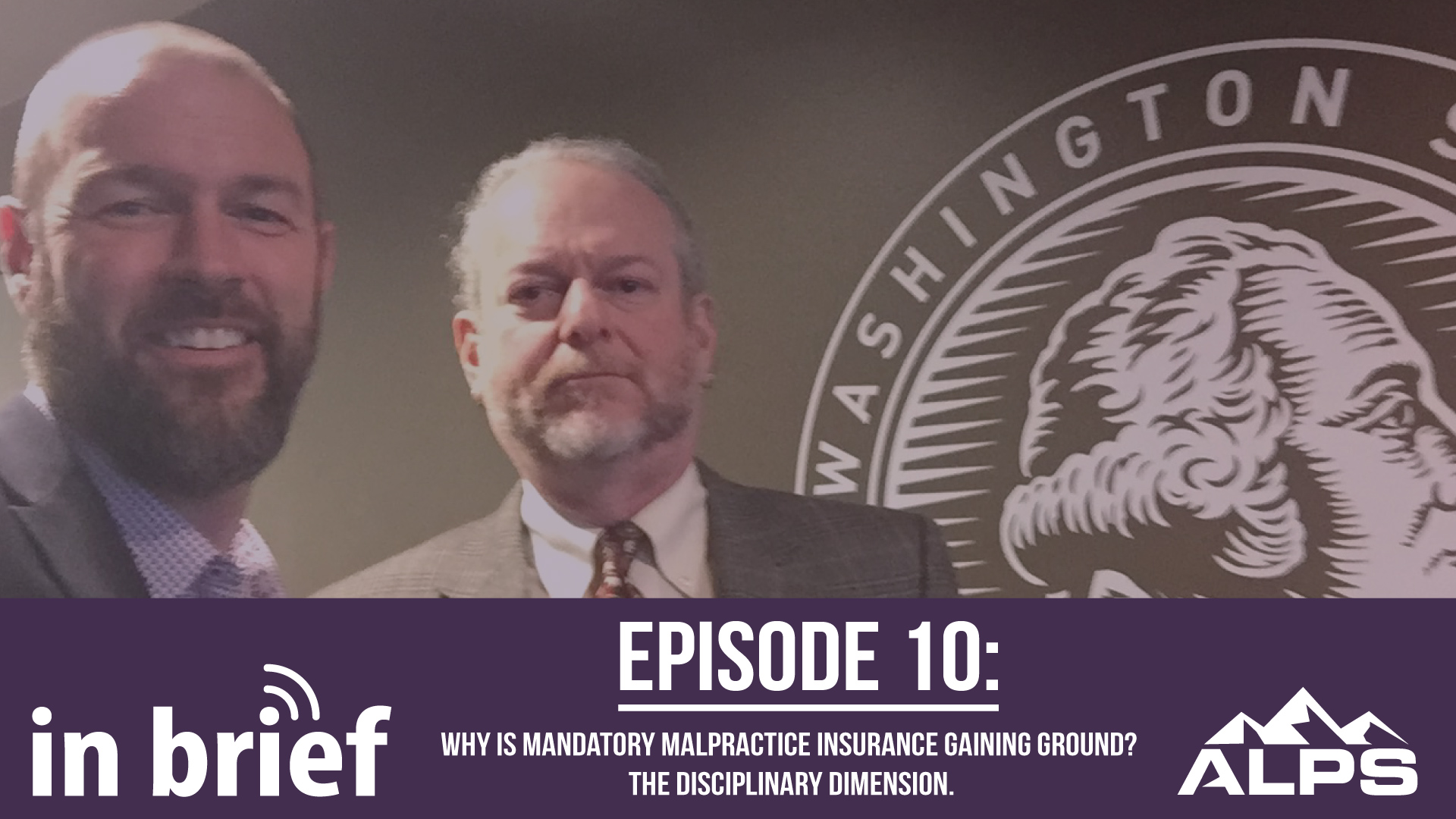
9 min read
ALPS Executive Vice President, Chris Newbold, recently sat down with Doug Ende, the Chief Disciplinary Counsel at the Washington State Bar...
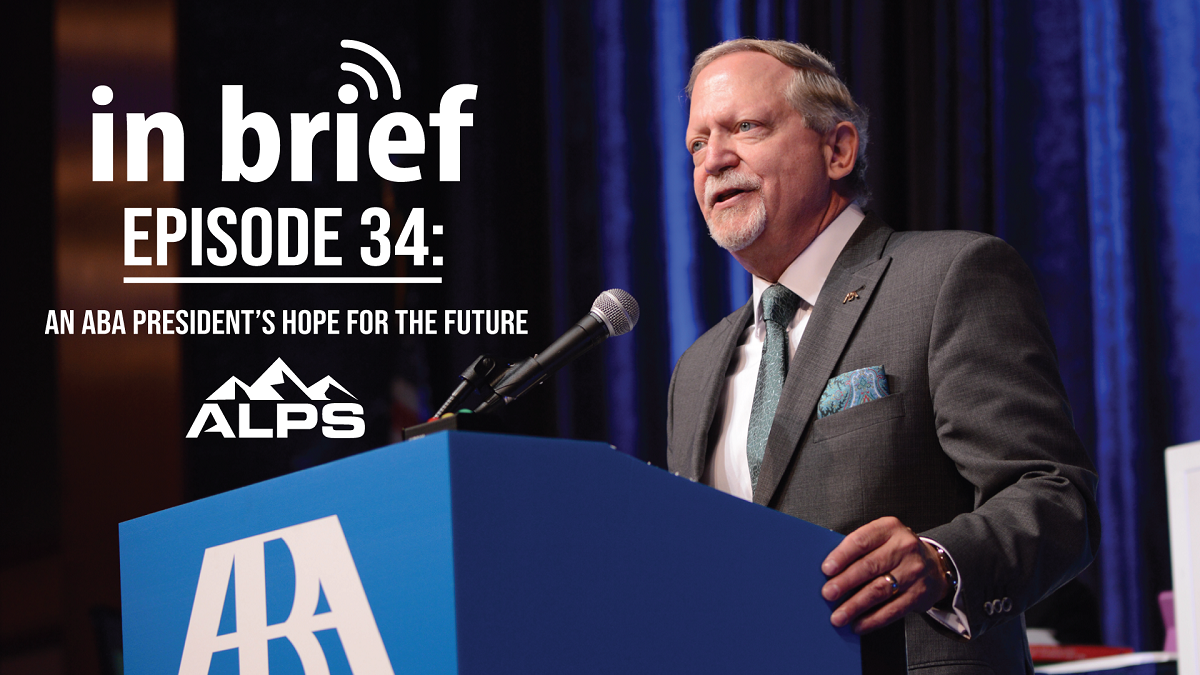
18 min read
What is the American Bar Association (ABA) doing to ensure there is a national voice for, not just the legal profession, but for vulnerable people...
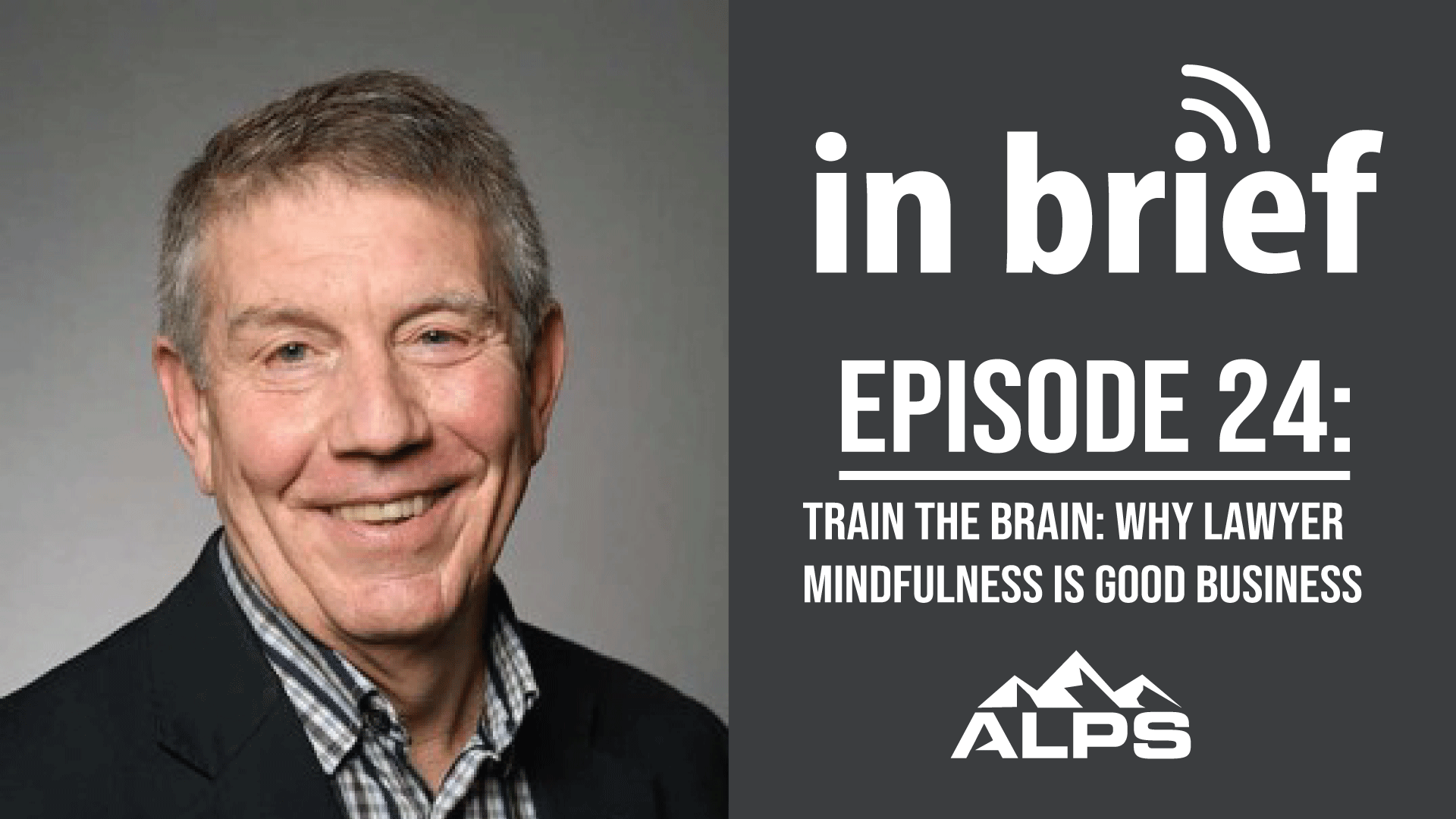
10 min read
Jeff Bunn, lawyer, wellness expert and owner of the Mindful Law Coaching and Consulting Group, presents the business case for investing in attorney...